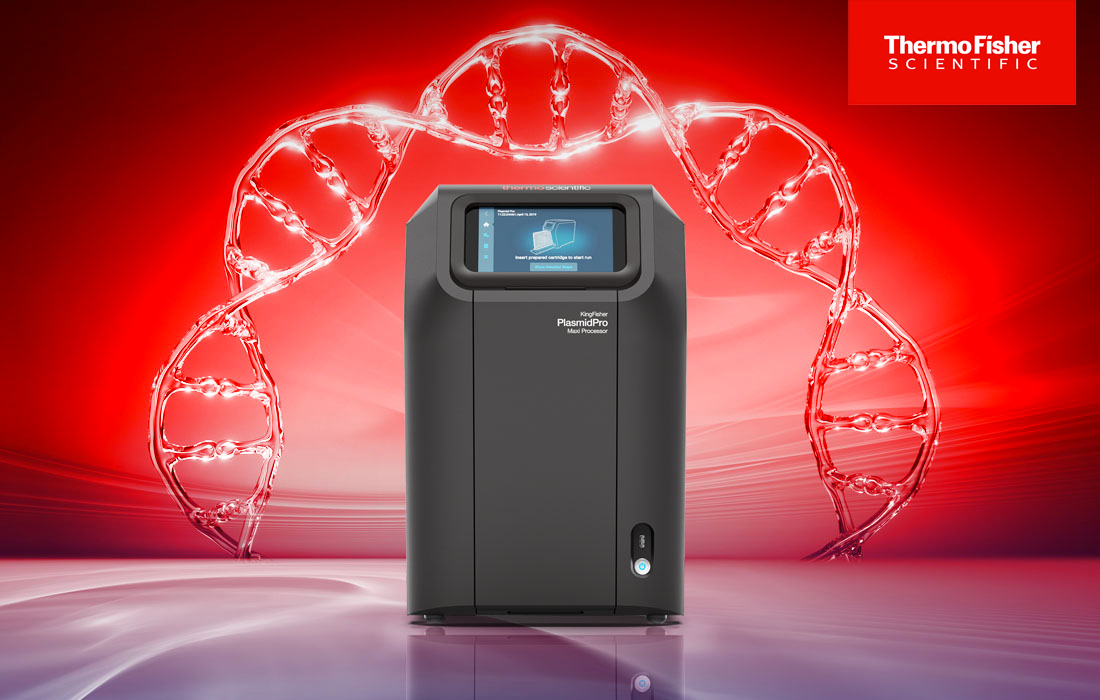Thermo Fisher unveils automated plasmid purification system
Thermo Fisher Scientific has introduced a novel fully automated maxi-scale plasmid DNA purification system, potentially accelerating the development of cell and gene therapies. The Thermo Scientific KingFisher PlasmidPro Maxi Processor (PlasmidPro) offers complete automation for both mini and maxi scale purification, delivering high-purity plasmid without manual column preparation or intervention. Thermo Fisher Scientific notes that the PlasmidPro is currently for research use only.
Streamlining plasmid production
Plasmids play a crucial role in various molecular biology applications, including transfection, protein expression, gene therapy, DNA sequencing and vaccine development. They serve as critical laboratory tools, acting as carriers to deliver desired genes or DNA fragments into target cells. With approximately 1,700 clinical trials for cell and gene therapies currently underway globally, the demand for efficient plasmid DNA purification has grown significantly.
The PlasmidPro system aims to address this demand by offering a ‘press and go’ solution that reduces the traditional process time by half.
Amy Butler, president of biosciences at Thermo Fisher Scientific, noted: “By fully automating a critical step in plasmid DNA manufacturing, the PlasmidPro DNA purification system can give time back to our customers to focus on their research and bringing life-saving therapies and vaccines to patients.”
Technical specifications
The new system requires no set-up, centrifugation or pipetting, and utilises a self-contained cartridge pre-filled with all necessary reagents. This design minimises set-up time and contamination risks whilst eliminating the need for additional instrumentation and plastics. The PlasmidPro can process 100-150 mL of fresh overnight culture, producing up to 1.5 mg DNA yield in approximately 75 minutes.
For more information, visit: https://bit.ly/3A4iPwM
Implications for research and development
By streamlining the plasmid purification process, the PlasmidPro system could potentially accelerate the discovery and development of various therapies, including cell and gene therapies, monoclonal antibody therapies, and mRNA therapies and vaccines. This innovation may prove particularly valuable in the rapidly evolving field of genetic medicine, where efficient plasmid production is often a rate-limiting step in research and development pipelines.
Digital issue: Please click here for more information





